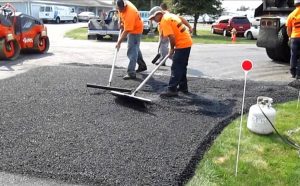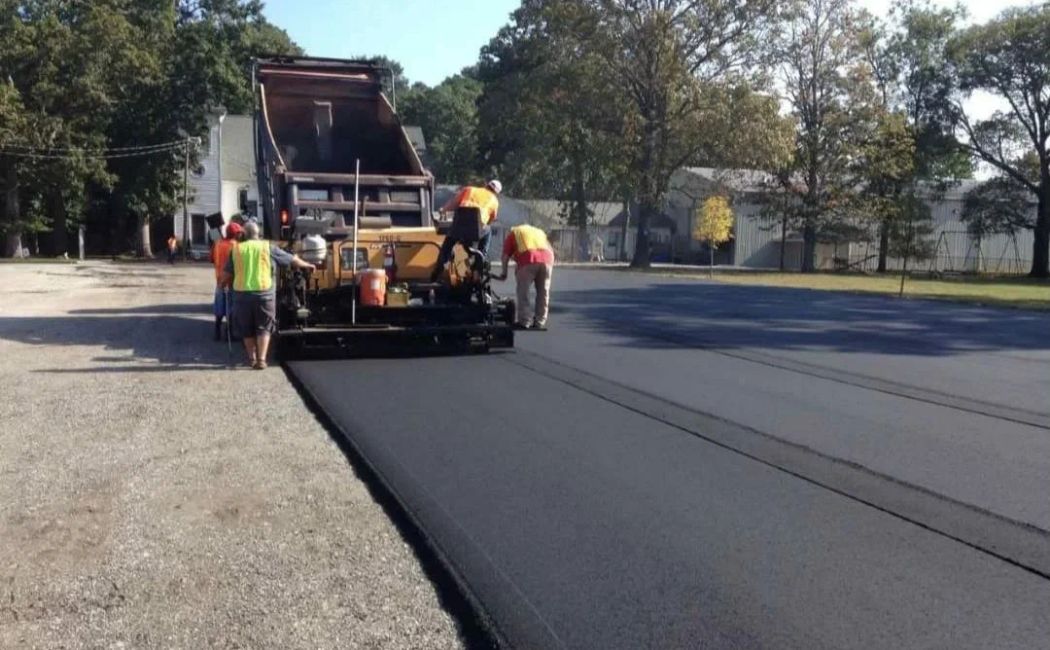Creating strong, long-lasting asphalt surfaces requires more than just pouring and rolling. Asphalt paving involves meticulous planning, expert execution, and high-quality materials. Whether it’s a residential driveway or a large commercial lot, understanding each phase of this process is crucial to achieving results that stand the test of time. In this guide, we walk you through the complete process of asphalt paving from preparation to the final layer, highlighting the importance of technique, timing, and professionalism.
Understanding the Importance of Proper Asphalt Surface Preparation
Surface preparation is the cornerstone of any successful asphalt paving project. Without a solid foundation, even the highest quality materials can deteriorate prematurely.
Why Asphalt Surface Preparation Matters
Proper preparation ensures that the asphalt adheres correctly and provides a smooth, even surface. This stage involves grading and leveling the existing surface, removing debris, and compacting the base material. Skipping or rushing through these tasks can lead to cracking, potholes, and drainage issues that reduce the life of the asphalt.
Key Steps in Surface Preparation
The first step includes removing old pavement or grass to expose the underlying soil. Next, the area is graded to ensure proper drainage, followed by laying a sub-base of crushed stone or gravel. This base layer is then compacted to create a firm foundation. Each step must be performed carefully to avoid future structural problems.
Common Mistakes During Preparation
One common error is neglecting to address poor soil conditions. Weak or unstable soils can compromise the entire structure. Another mistake is failing to compact the sub-base adequately, which leads to uneven surfaces and premature damage. Hiring experienced asphalt paving contractors ensures these costly missteps are avoided.

Detailed Asphalt Installation Steps Explained
After surface preparation, the installation of asphalt begins. This phase transforms the prepared foundation into a durable, smooth surface ready for traffic.
Laying the Binder and Base Layers
Once the surface is ready, a binder layer is applied. This mixture of aggregate and oil forms the structural backbone of the asphalt surface. The base layer, typically made from larger stones, provides additional strength and support. Both layers must be properly spread and compacted to ensure durability and load-bearing capacity.
Installing the Top Asphalt Layer
The final layer, also known as the surface or wear layer, is a finer mix of asphalt that provides a smooth, attractive finish. This layer includes smaller aggregates and is designed to withstand the effects of weather and traffic. This layer must be applied evenly and compacted quickly before it cools.
Finishing Touches and Rolling
Once all asphalt layers are in place, heavy rollers compact the surface to eliminate air pockets and bind the materials. Edges are carefully shaped to prevent crumbling, and any necessary curbs or transitions are formed. This stage determines the final smoothness and quality of the pavement.
Comparing Residential and Commercial Asphalt Paving Projects
While the basic steps of asphalt paving remain consistent, residential and commercial projects differ significantly in scope, complexity, and requirements.
Residential Asphalt Paving Essentials
Home driveways require careful attention to aesthetics, drainage, and long-term durability. Since residential areas typically experience lighter traffic, the focus is on using the right thickness and slope to ensure longevity. Homeowners often look for durable driveway paving solutions that complement the overall look of their property.
Commercial Paving Services Requirements
Commercial paving services handle larger spaces such as parking lots and roads, requiring more robust materials and extensive planning. These projects must comply with zoning laws, accommodate higher traffic loads, and include features like line striping, signage, and ADA compliance. Commercial asphalt paving contractors typically work with strict timelines and safety standards.
Choosing Between Residential and Commercial Contractors
Not all paving companies are equipped for both types of projects. It’s important to hire contractors with specific experience in either residential or commercial paving. They understand the unique challenges and can tailor the process to meet project-specific goals and expectations.

Choosing High Quality Asphalt Materials and Techniques
The durability of any asphalt project heavily depends on the quality of materials and application techniques being used. Cutting corners here can lead to significant problems down the road.
Importance of High Quality Asphalt Materials
Using superior asphalt mixtures ensures better compaction, weather resistance, and flexibility. Inferior materials may be cheaper upfront, but often require frequent repairs and early replacement. High-quality materials enhance the appearance and lifespan of the finished surface.
Modern Equipment and Professional Techniques
Experienced asphalt paving contractors use modern machinery like laser-guided pavers and vibratory rollers to ensure precision and consistency. Proper temperature control during installation is also essential; too hot and it won’t set properly; too cold and it may crack.
Integrating Energy-Efficient and Eco-Friendly Solutions
Sustainable paving options are mostly gaining popularity. Recycled asphalt products (RAP) reduce the environmental impact while offering the same durability as new materials. Additionally, reflective and porous asphalt options help manage the stormwater and reduce urban heat.
Maintenance Tips for Long-Lasting Asphalt Solutions
Proper maintenance extends the life of your asphalt and keeps it looking its best. Regular care prevents small issues from becoming expensive repairs.
Routine Inspections and Cleaning
Inspect your asphalt surfaces regularly for signs of wear, cracks, or pooling water. Remove debris and clean oil spills promptly to prevent surface degradation. These simple steps help preserve the surface’s integrity and appearance.
Sealcoating and Crack Filling
Sealcoating adds a protective layer to the asphalt, shielding it from UV rays, chemicals, and water damage. Crack filling prevents moisture from penetrating and freezing inside the pavement, which causes expansion and further damage. Both methods are essential to long-term maintenance.
Professional Maintenance Services
Hiring professional asphalt services for annual inspections and preventative maintenance is the best and smart investment. Experts can identify issues early and recommend the best solutions, ensuring your pavement remains in excellent condition for years.

Trust Asphalt & Concrete Services of Metro Denver for Professional Results
When it comes to achieving long-lasting and durable asphalt surfaces, trust the experienced professionals at Asphalt & Concrete Services of Metro Denver. Our team specializes in both residential asphalt paving and commercial paving services, using high-quality asphalt materials and the latest techniques to ensure exceptional results.
We understand every aspect of the paving process, from asphalt surface preparation to final compaction, and we’re committed to delivering superior craftsmanship on every project. Whether you’re looking for durable driveway paving or large-scale commercial work, our skilled contractors have you covered.
Contact Asphalt & Concrete Services of Metro Denver today for professional asphalt services that stand the test of time. Let us bring your paving project to life with precision, reliability, and unmatched customer care.
FAQs About the Asphalt Paving Process
How long does it take to complete an asphalt paving project?
Most residential projects take 1–2 days, while commercial jobs can take several days or even weeks, depending on size and complexity.
Can asphalt be installed in cold weather?
It’s best to install asphalt in warmer temperatures (50°F and above) for proper curing. Cold weather can affect compaction and lead to cracking.
What is the average lifespan of a paved asphalt surface?
With proper maintenance, asphalt surfaces can last 15–20 years or more.
How often should I sealcoat my driveway?
Sealcoating should be done every 2–3 years to maintain surface protection and appearance.
Do I need to replace my driveway if it has cracks?
Not necessarily. Small cracks can be repaired. However, widespread or deep cracks may require resurfacing or full replacement.

